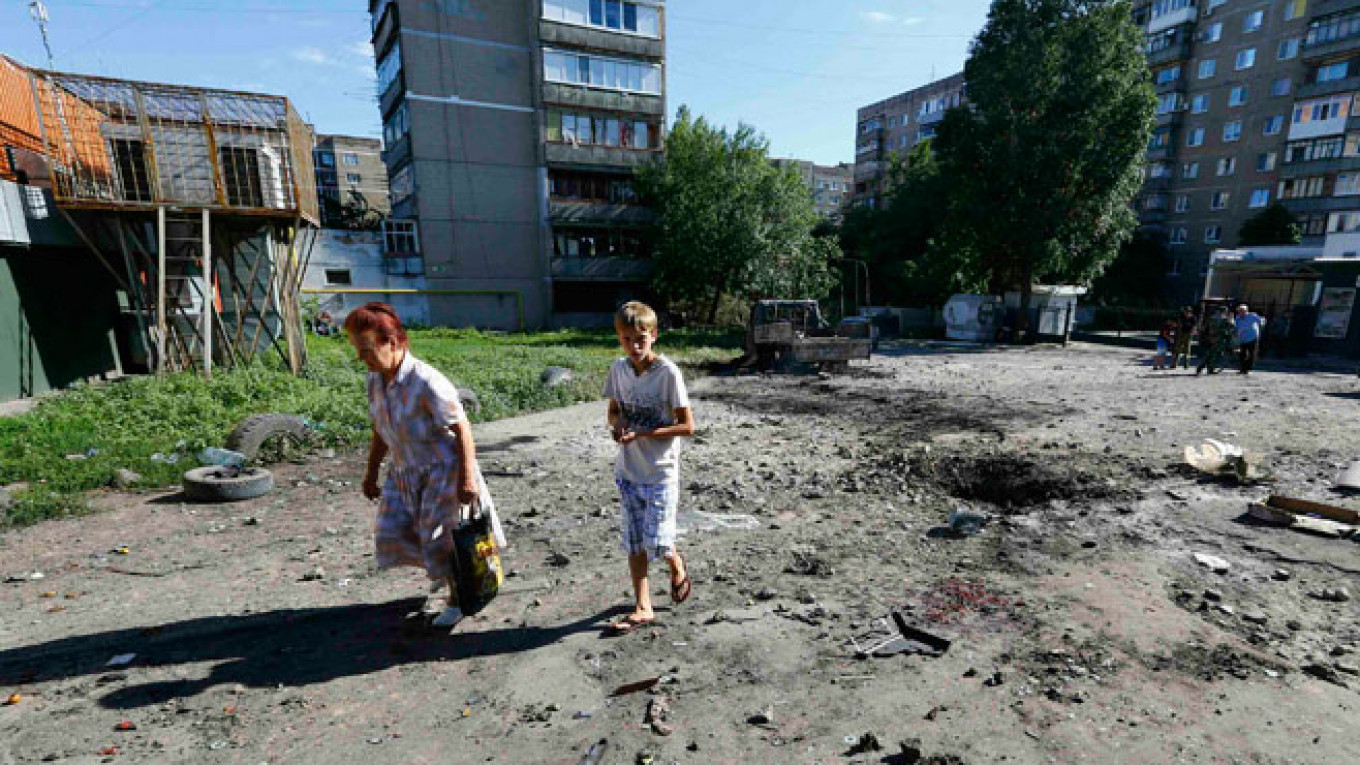Despite hopes that the tragedy of Malaysia Airlines Flight MH17 would be a game-changer in Ukraine's simmering conflict, days later it is clear that this is highly unlikely.
Nothing will be dramatically altered by the results of the investigation into the catastrophe. No matter who — Ukrainian military or pro-Russian separatists — is found guilty of firing the missile that took down the civilian airliner, international opinion will hold Russia politically responsible. However, Russia was already held responsible for the conflict, which even before MH17's destruction had claimed hundreds of lives in Ukraine.
None of the players involved in fighting on the ground and in the broader geopolitical game around Ukraine's future have had their strategic calculus visibly affected by the deaths of the plane's nearly 300 passengers, including 80 children.
Kiev is pressing ahead with what it calls its anti-terrorist operation against pro-Russian separatists in eastern Ukraine.
The separatists are holding their ground.
It is also very unlikely that President Vladimir Putin has abandoned his resolve to block the emergence of a unified Western-leaning and now certainly anti-Russian Ukraine.
The U.S. will continue to provide Ukraine with political backing, financial perks and nonlethal military support.
Washington will use the downed plane to rally international support for stronger sanctions against Russia, but they will hardly win the hearts and minds of more governments, most importantly Russia's BRICS partners. The BRICS pursue their own national interests vis-a-vis Moscow, which in China's case stacks up to billions of dollars of investment in Russian gas and infrastructure.
The European Union, with its $430 billion trade turnover with Russia, will continue weighing the pros and cons of supporting U.S. sanctions. The domestic political cost of inaction will grow, given that hundreds of EU citizens perished in the tragedy, but European governments can easily come up with watered-down measures that are purely for show.
The international media frenzy that followed the tragedy produced results, but not ones that are necessarily guaranteed to help resolve the crisis in Ukraine. The situation has stirred up even more hatred in the West for Russia and Putin in particular, feeding the West's disinclination to grasp the complexities of Russia's relationship with Ukraine. This strongly undermines the chances of a political solution to the conflict and lends more power to the proponents of dealing with Russia by demonstrating and eventually using force.
But even sanctions that hit Russia's economy hard are unlikely to change Putin's stance. Yielding to a foreign show of strength would be political suicide for him, and his most likely response would be to further strengthen the besieged-fortress mentality in Russia, cracking down on the few remaining voices of dissent and ramping up xenophobic rhetoric.
Today, it looks like the only effect the MH17 tragedy has had on the conflict is to enable the Ukrainian air force to freely pound the rebel positions around Donetsk. The separatists, perhaps wary of the bad publicity that would come with shooting down any more airplanes, have so far held off from responding to the air strikes with whatever anti-aircraft systems they might have at their disposal.
This might give Kiev some advantage on the ground in the short term, but with the Kremlin firmly set against settling the conflict on Ukraine's terms — total surrender of the pro-Russian separatists without any federalization of Ukraine — the driving forces behind the conflict have not been altered.
A Message from The Moscow Times:
Dear readers,
We are facing unprecedented challenges. Russia's Prosecutor General's Office has designated The Moscow Times as an "undesirable" organization, criminalizing our work and putting our staff at risk of prosecution. This follows our earlier unjust labeling as a "foreign agent."
These actions are direct attempts to silence independent journalism in Russia. The authorities claim our work "discredits the decisions of the Russian leadership." We see things differently: we strive to provide accurate, unbiased reporting on Russia.
We, the journalists of The Moscow Times, refuse to be silenced. But to continue our work, we need your help.
Your support, no matter how small, makes a world of difference. If you can, please support us monthly starting from just $2. It's quick to set up, and every contribution makes a significant impact.
By supporting The Moscow Times, you're defending open, independent journalism in the face of repression. Thank you for standing with us.
Remind me later.






